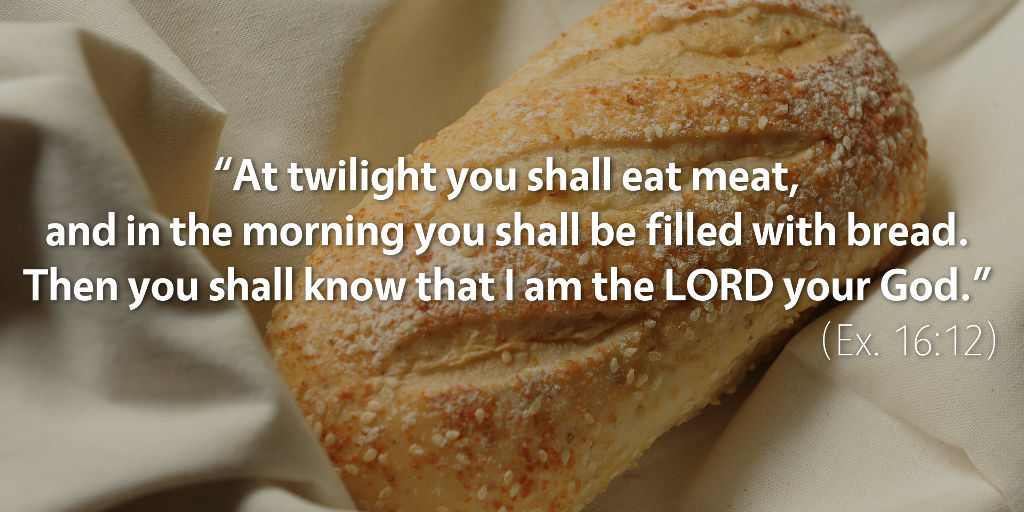Bible Readings for March 5th
Exodus 16 | Luke 19 | Job 34 | 2 Corinthians 4
Obviously, providing for the basic needs of Israel in the wilderness would be no small task, yet the entire Exodus would be for nothing if God’s people did not survive long enough to enter into their inheritance. So, God provided water for his people to drink in Exodus 15, and in Exodus 16, God begins to provide food for his people to eat.
Out of sheer grace toward the Israelites, who had grumbled and complained and wished out loud that they had instead died in Egypt (Ex. 16:3), God generously provides bread and meat for Israel to eat every day, except on the Sabbath.
Nearly fifteen hundred years later during the ministry of Jesus, the Jews pointed back to this story from the Old Testament and demanded that Jesus perform a sign to demonstrate that he himself was on the same level as Moses, who had fed the people of Israel in the wilderness. They asked, “Then what sign do you do, that we may see and believe you? What work do you perform? Our fathers ate the manna in the wilderness” (John 6:30–31). Although it is valid to ask a prophet to prove that he is, in reality, sent by God, the demand that the people made of Jesus was wrong in two ways.
First, on the day that the Jews asked Jesus to replicate the miracle of feeding Israel in the wilderness, they ignored the fact that Jesus had literally fed Israelites in the wilderness by multiplying fish and bread to feed five thousand people on the shores of the Sea of Galilee (John 6:1–15). Their question is not fueled by a genuine desire to protect the glory of God from false prophets—their question is fueled, rather, by a gluttonous desire for another free lunch.
Second, even though the Israelites did eat manna every day under Moses for forty years (Ex. 16:35), when the Jews ask Jesus to feed them again, they are failing to recognize that the food Moses had fed to Israel never satisfied them (John 6:27). Even more, they don’t think through the implications of the fact that Moses fed Israel bread for forty years and yet those Israelites still died (John 6:49).
Jesus, on the other hand, came to feed his people bread that would satisfy all their hunger and thirst (John 6:35), because Jesus came to give himself to his people. When Moses fed Israel bread in the wilderness, he did so to foreshadow the leader of God’s people who would not merely feed Israel more manna, but who would himself become the bread of life for his people by this promise: “I am the bread of life; whoever comes to me shall not hunger, and whoever believes in me shall never thirst” (John 6:35).1
1 I rely heavily for this meditation on the sermons of John Piper from John 6: <http://www.desiringgod.org/sermons/by-scripture/john/6>
Podcast: Play in new window | Download (4.9MB) | Embed
Subscribe: Apple Podcasts | RSS | More

Scripture quotations are from The Holy Bible, English Standard Version copyright © 2001 by Crossway Bibles, a division of Good News Publishers. Used by permission. All rights reserved.


